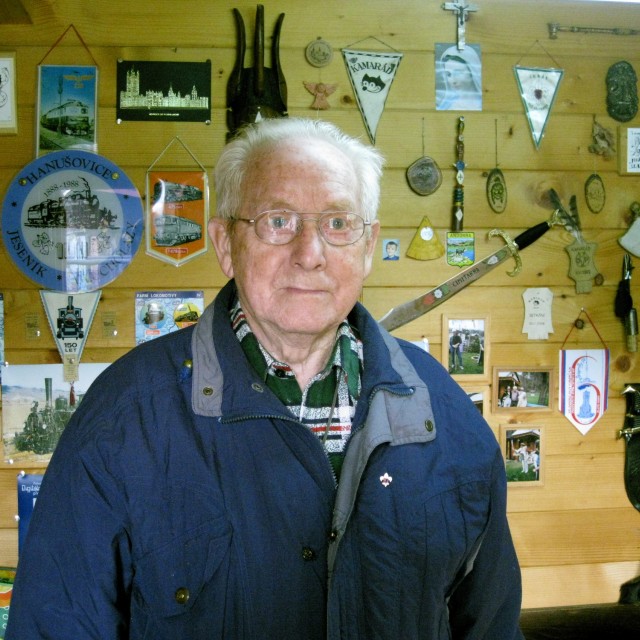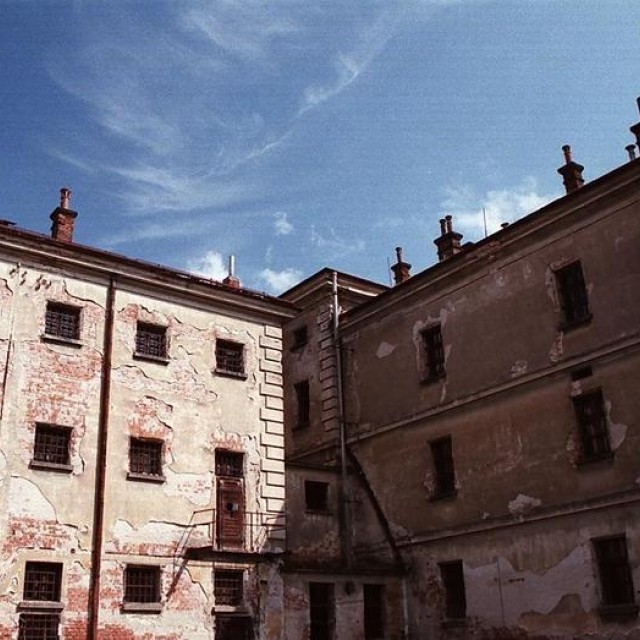Tell-the-truth
Jan Janků was arrested, due to his contacts to the Světlana anti-communist resistance group in Hanušovice, on 29 May 1949. He was waiting for his trial in detention in Uherské Hradiště and suffered through several interrogations, courtesy of the infamous investigators Alois Grebeníček and Antonín Višenka. Janků recalls: “The interrogations and beating was done in special cells, called the “thirties.” One day I came to a cell and there was still blood on the wall. Investigator Grebeníček had beaten prisoner Pohůnek to death there the night before. The first thing to do was sit on the bench. Višenka was in front of me and he [Grebeníček] behind me. Višenka did not investigate; Grebeníček did the investigating but he just stood there silent. He introduced himself, though: ‘My name is Višenka, Tonda Višenka. I will investigate you. And you are a scout. I am a scout too.’ I said: ‘How can you be a scout if you’re an investigator? That’s against our conviction.’ So I silenced him […], but Grebeníček knocked my two teeth out for that. I didn’t have a single spot in the face where I hadn’t been hit.” Jan Janků did not talk during the interrogations so he was administered a psychotropic substance, (Scopolamine), during another interrogation. The purpose was to force the prisoner to confess. Janků continued, “He brought some cherries. Do you know what cherries meant for a hungry prisoner? And I was inexperienced. Višenka told me: ‘Honza, have these cherries, they are a treat for you.’ And silly me, I ate those cherries, (if I had been more experienced, I’d have sent him packing). They contained the Psychotron, or as we called it, the ‘tell-the-truth’ drug. I didn't sleep a wink for three days afterwards. I kept telling myself: ‘I must overcome this, I must, I must, I mustn’t say anything, I mustn’'t say anything, I know nothing, I know nothing, I don’t know anything.’ And I kept putting this idea into my head. All the time. And I managed it. They didn't squeeze anything out of me.”
Hodnocení
Hodnotilo 0 lidí
Routes
Not a part of any route.
Comments
- Radomír Silber
2019-02-14 18:20:34 - Jan Janků odmítl podle tvrzení svého přítele vypovídat v 90. letech před orgány činnými v trestním řízení, že prý nechce trápit starého Aloise Grebeníčka. Po smrti A. Grebeníčka však náhle začal neoficiálně tvrdit, že A. Grebeníček jej týral a že zavraždil A. Pohůnka. Někdy dokonce uváděl, že byl svědkem toho, jak byl A. Pohůnek vykopáván mrtvý A. Grebeníčkem z cely, kam měl být den na to umístěn J. Janků. Stařeček Janků bohužel bohužel nemluvil pravdu. Nevyštřoval je A. Grebeníček, ale A. Višenka, který nepracoval v tandemu s A. Grebeníčkem, ale s A. Holubem. A. Pohůnek zemřel 13. března 1949 a J. Janků byl zatčen při zátahu na přesunující se členy skupiny Světlana, kteří chtěli utéci do Rakouska, až koncem května.








